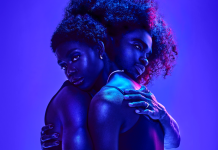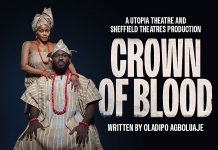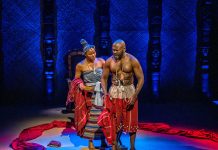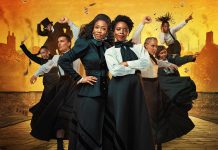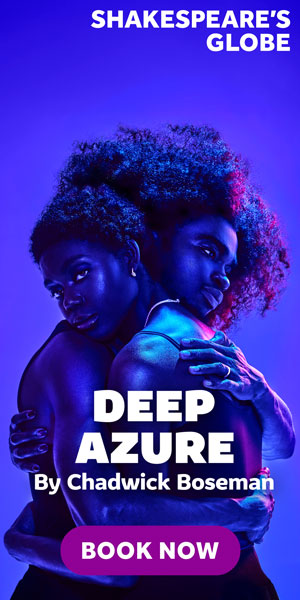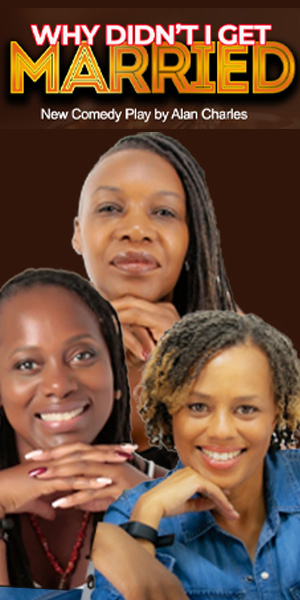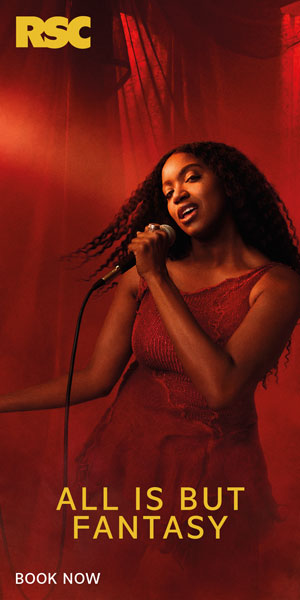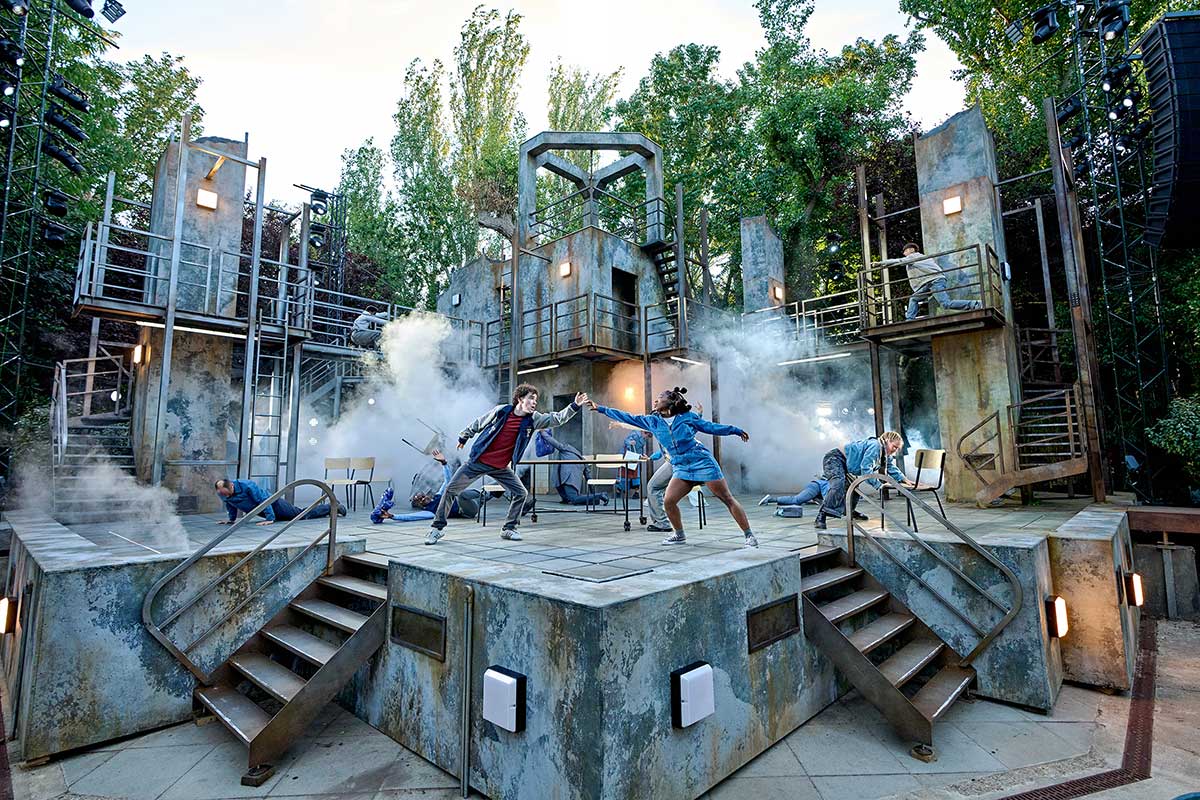
As a child, one of my favourite books was Noughts and Crosses. It was unlike anything I’d ever read before – it felt mature and controversial, which I loved. I read every book in the series and became deeply invested in the characters. Fast forward to now at Regents Park Open Air Theatre, and the story continues to capture me in a special way through its live performance adaptation.
If you haven’t read the book by the talented Malorie Blackman, or watched the TV series, then you’ve missed out! The stage adaptation by Dominic Cooke, directed by Tinuke Craig, tells the story of a new UK called Albion, a place where Crosses (Black people) are the powerful ruling class, and Noughts (white people) are the oppressed. Sound familiar? It’s real life, just reversed.
Crosses control the government, schools, businesses, and the media, and they have no plans of giving up that power anytime soon. Amongst all the segregation is a modern-day Romeo and Juliet love story between two teenagers: Sephy (Corinna Brown) and Callum (Noah Valentine). Sephy, a Cross, is the daughter of the Deputy Prime Minister and lives a life of privilege, while Callum, a Nought, is struggling. His mum has been made redundant, his sister was brutally attacked, and his family is barely making ends meet.
Yet against all odds, Callum and Sephy continue to find ways for their love to grow.
Throughout the play, we watch Callum navigate being one of the only Noughts to attend a prestigious Cross school (thanks to a DEI apprenticeship), facing constant racial abuse. Meanwhile, Sephy begins to speak out for racial justice and tries to challenge the system from within.
But things take a turn. Loved ones die, and the weight of racial injustice becomes unbearable. Noughts, including Callum’s own family members, begin to fight back by forming a “terrorist” group called the Liberation Militia. This leads to the loss of innocent lives, Noughts being labelled as terrorists, and some even sentenced to death – yes, capital punishment still exists in Albion.
With Callum pushed to the edge because of the colour of his skin, and Sephy forced into boarding school, the question remains: will their love survive or be torn apart by the brutal racial divide?
There are many things I enjoyed about this play. The set and costume design by Colin Richmond captured the world of Albion perfectly. It was gritty and industrial, and it reminded me of something out of The Hunger Games. The set had layers and different levels, and although it never physically changed, it transformed into bedrooms, schools, and even a prison using just simple props and clever lighting.
One thing I appreciated was seeing the Noughts student Shania (Elle Davies) wearing a dark brown plaster on her face. It stood out noticeably against her fair skin and served as a blunt reminder that it’s only been a few years since brown-toned plasters became widely available. And don’t get me started on “flesh tone” tights. For years, we were stuck with a single shade that made our legs look grey because shops didn’t cater to different skin tones.
I also loved the clever wordplay, like changing “blackmail” to “whitemail.” It’s important to recognise how language can carry harmful meanings. Why is it that in real life, bad things are so often linked to Black, while good things are associated with white?
The movement direction by Ingrid Mackinnon was strong, especially in the kidnapping scene where Sephy is tossed around. There are several fight scenes throughout the play, and each one felt intentional and impactful.
The relationships between the characters felt believable, particularly between Callum’s dad, Ryan (Richard Riddell), and his mum, Meggie (Kate Kordel). Although I don’t remember them standing out in the original book, they left a strong impression on me in the play. I also enjoyed watching the love hate dynamic between Sephy and her older sister, Minerva (Jessica Layde). Their relationship had some very tender moments towards the end, which were lovely to watch.
Although Callum and Sephy’s relationship is the central storyline, I didn’t feel that the spark was quite there – although I know many that will disagree. It often felt more like a forced friendship than a genuine love story. Sephy came across as much younger in her mannerisms, speech, and actions compared to both how she was portrayed in the book and to her peers and Callum on stage. Perhaps that was intentional, to show the age gap between them, but I found it a little distracting and wished Sephy had been presented as slightly more mature.
That said, both actors were very talented and really held their own on stage.
While I did find this adaptation at times a little flat and missing the spark and excitement of the book, I would still recommend it because it has the power to shift perspectives on race. I believe everyone who watches this play will leave deep in thought. Hopefully, it will help people finally understand what our experiences as Black and Brown people have been for centuries. I hope it will spark important conversations and who knows, maybe even inspire real change.
I still remember the feeling I had when I first read Noughts and Crosses as a child. At first, it felt like I was reading something I shouldn’t, because it showed just how painful it is to live in a world where one race is seen as superior. But it also left me with a sense of hope – hope that one day we’ll live in a world where we are all truly equal. I’m still waiting for that day to come, but until then, this play stands as a powerful reminder that we still have a long way to go when it comes to equality. And yet, it beautifully teaches us that love can still win.
If you can watch it, do! I promise you; Noughts and Crosses will forever leave a lasting impression.
NEED TO KNOW:
- Noughts & Crosses plays at Regent’s Park Open Air Theatre until 26 Jul 2025 | see listing
- Suitable for ages 14+
- 2 hrs + 30 mins inc interval

